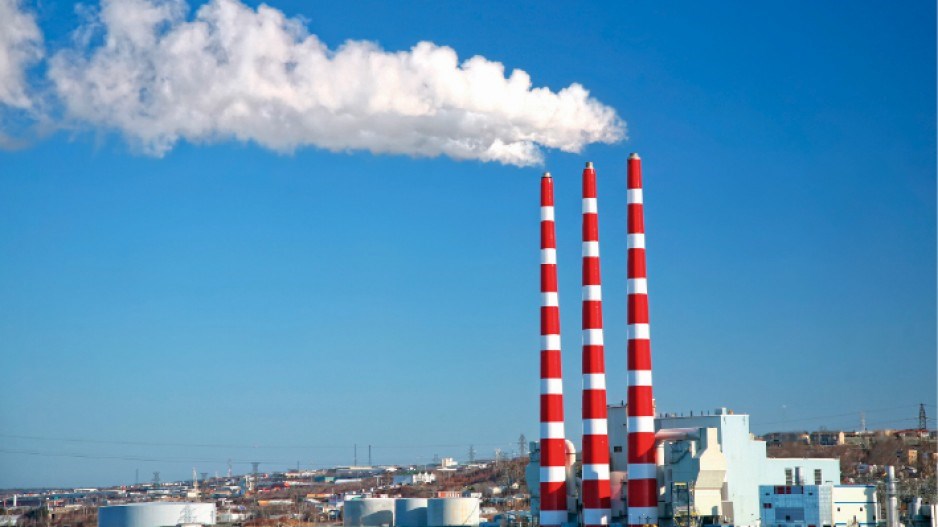The B.C. government will keep its carbon tax frozen at $30 per tonne until 2018, after which it may be broadened and increased, and will introduce new emissions caps for industry, transportation and buildings.
That’s if the B.C. government adopts the recommendations being made by the Climate Leadership Team, which was tasked with updating B.C.’s climate action plan adopted in 2008.
The B.C. government released a sketch of the new recommendations on November 27.
It includes a recommendation for new emissions caps that would require three key sectors to reduce carbon emissions by 40% of 2007 levels by 2030. The three key sectors are transportation, industry and buildings.
The carbon tax, introduced in 2008, would remain frozen at $30 per tonne until 2018, after which it will be broadened and increased, according to the recommendations.
But it appears that, if it is raised, certain industries may get some kind of exemption.
“The province would only consider an increase in the carbon tax under a regime where emission-intensive, trade-exposed industries are fully protected from
any carbon tax increase,” a B.C. government news release states.
In other words, some of the biggest generators of carbon emissions could get special exemptions from the carbon tax.
It’s also not clear whether the carbon tax will be extended to non-combustion sources of carbon, such as the CO2 that is vented from natural gas processing. Currently, those emissions are not taxed.
The recommendation for keeping the carbon tax frozen at $30 per tonne is to allow other jurisdictions “to catch up” to B.C., according to a government new release.
The NDP government in Alberta recently announced plans to also introduce a carbon tax, starting at $20 per tonne and rising to $30 per tonne. Other provinces are planning cap-and-trade carbon pricing.
Mark Jaccard, an energy economist at Simon Fraser University, slammed the B.C. government for not committing to raising the carbon tax above $30 per tonne immediately. The carbon tax has been frozen at $30 per tonne since 2013.
“Gordon Campbell and other political leaders have now proven that, if a politician is sincere, they will implement the policies they promise immediately,” he said in an email to Business in Vancouver.
But Matt Horne, associate regional director for the Pembina Institute, praised the recommendations and urged the government to act on them.
“The central challenge we wrestled with was how to strengthen B.C.’s climate policies and also maintain the economy’s competiveness,” Horne said in a press release.
“I am pleased that the province is prepared to increase the carbon tax once the tools to address competitiveness impacts on our emissions-intensive trade-exposed sectors are designed. That work needs to happen quickly, because we can’t afford to delay the transition to a clean-energy economy.
“The package also adds in a requirement to protect trade-exposed industries, which would help maintain B.C.’s competitiveness. This addresses concerns from the business community and should receive their support. Ultimately it’s a win for the environment and a win for the economy.”
The Climate Leadership Team’s recommendations will be subject to public consultations starting in January.




